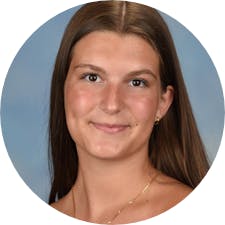A town hall organized by Duke Student Government and the Trinity Curriculum Development Committee convened Monday evening at the Bryan Center to discuss anticipated changes to the Trinity College curriculum.
The town hall was a way for the TCDC to collect feedback as the committee prepares to present a proposal for a new Trinity College curriculum to the Arts & Sciences Council in January. The Council is tasked with updating the curriculum approximately every 15 years, with its newest iteration set to launch in fall 2025.
Sarah Ishmael, an associate in research for the Duke Program in Education, opened the town hall, telling attendees that the committee wanted to hear their thoughts and provide an opportunity for students to engage with the “very complicated” curriculum development process. The town hall, which consisted of students and faculty, then dispersed into small groups for further discussion.
Potential changes
The small groups discussed two possible new changes to the Trinity curriculum: a winter term and modular courses.
The town hall’s agenda described a winter term as one “in which students could take one class in depth,” citing similar programs at the University of Virginia and the University of Rhode Island.
Modular courses were described as being “two sets of seven-week courses,” pointing to course structures at Wilmington University and the Harvard Extension School. Joshua Sosin, associate professor of classical studies, described the potential modular courses as a pair of courses centered on an interdisciplinary subject taught in two consecutive sections.
Modular courses could take multiple forms, including courses with a more narrow focus, such as a statistics course geared towards ecology majors. Another version of this might expose students to a broader range of topics, such as a seven-week section on Greek history followed by another section on Roman history, as suggested by Sosin.
Thoughts on the current curriculum
In their small groups, attendees also tackled questions related to the flexibility and breadth of the curriculum.
Some small groups brought up the concern that the current requirements limit exploratory opportunities and may force some students to overload courses to finish major requirements in their last two years.
One small group agreed that although there was currently space to explore academic interests, students had to remain cognizant of what they ultimately wanted to study. Some upperclassmen expressed regrets about not solidifying their major earlier on.
Other students attributed this limitation to how the areas of knowledge and modes of inquiry requirements are coded for certain courses, with one student indicating that many environmental science courses are coded under “social sciences” while not being coded under “natural sciences.”
Another topic of conversation was the Duke Focus Program, which offers “interdisciplinary clusters” to students in their first semester. Former program participants lauded its fostering of “great community” but expressed how the courses were “arbitrary” and different from what they thought they signed up for.
Get The Chronicle straight to your inbox
Signup for our weekly newsletter. Cancel at any time.

Michelle Voicu is a Trinity sophomore and an associate news editor for the news department.

